Award ceremony
On 13 November 2024, the European Commission announced the winners of the 10th edition of the European Capital of Innovation Awards (iCapital) at the iCapital Award ceremony in Lisbon, during the Web Summit. Supported by the European Innovation Council under Horizon Europe, the prize recognises the role cities play in shaping the local innovation ecosystem and promoting game-changing innovation. Read more about the winners of the two award categories and the jury members below.
The European Capital of Innovation
Winner: Torino (Italy)

When it comes to innovation, Torino is a remarkable example of how a city can undergo radical transformation while remaining deeply connected to its heritage.
Historically recognised as Italy's industrial capital, Torino has, over the past few decades, reinvented itself into a vibrant laboratory for technological, social and environmental innovation.
This evolution has been propelled by an open innovation strategy and the city's proactive approach to adapting to present and future urban challenges: from Climate Resilience to Housing, from Urban Mobility to Talent Retention.
2nd place: Espoo (Finland)

Espoo is the city that drives Finnish business and innovation. Espoo is birthplace of 50% of Finland's university-born startups, the catalyst of Finnish startup success and the backbone of the fastest growing urban area in the Nordics, boasting the highest share of children and youth in Finland, reflecting our commitment to nurturing the next generation of innovators. Unlike conventional cities with a central hub, Espoo thrives on a network that is spread out across different areas. This allows the city-as-a-service model to thrive wherever people are, making Espoo the perfect environment for innovation.
3rd place: West Midlands (United Kingdom)

Standing united, they are the West Midlands: one of Europe’s most exciting metropoles to live, work and play, spilt across the three cities of Birmingham, Coventry and Wolverhampton, and four surrounding towns. A place called home to 2.9 million people. They have a rich history that connects them all together. Once the worlds workshop for the automotive industry, innovation shaped their city-region to become an industrial powerhouse.
Today, innovation is once again driving the transformation of their city-region’s economy, their people, and our planet, through globally significant innovation clusters in Healthtech, Cleantech, and Digital Creativity. This transformation is driven by 8 universities and 11 science parks in one of the UK’s most exciting places for innovation talent, with 185,000 students from across the world.
The European Rising Innovative City
Winner: Braga (Portugal)

Braga has positioned itself as a pioneering force in sustainable urban development, embodying a forwardthinking approach that seamlessly integrates economic growth, social inclusion, and cultural richness. Over the past decade, Braga has achieved remarkable progress, with a 100% increase in exports, now contributing more than 2.4% to Portugal’s total exports. In parallel, the city has consistently created approximately 2000 new jobs annually, underscoring its role as a vibrant economic hub and a center of entrepreneurial dynamism.
2nd place: Linz (Austria)

Evolved from its industrial roots into a vibrant hub of innovation. Linz is no longer just the industrial powerhouse it once was – today, the urban innovation ecosystem of Linz is based on three foundational pillars that drive the city forward: citizen centred innovation, urban production and art, science & technology. This culture offers new perspectives for citizens and enriches the entire ecosystem. Linz's main goal is to use innovation to shape a responsible and vibrant urban future. Several institutions and projects play a crucial role in this process.
3rd place: Oulu (Finland)

Oulu is an insightful and down-to-earth city that lives and breathes on the terms of the northern nature. From its world-class research facilities to its vibrant startup ecosystem, Oulu has consistently demonstrated a commitment to fostering new thinking, advancement, and entrepreneurship.
As a region, Oulu and North Ostrobothnia ranks number one in Finland in RDI spending, 5,3% of regions GDP. For decades Oulu's ICT know-how has produced new innovations for the whole world, and today almost 3 billion people around the world use daily the technology developed in Oulu. In 2024, Oulu has been recognized as a second fastest growing startup ecosystem in Finland (by Startup Genome, Startup Blink) and the city was ranked the 13th happiest city in the world.
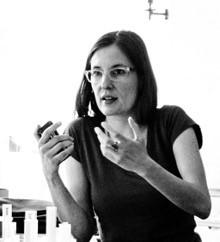 Milena Ivkovic
Milena Ivkovic[The European Capital of Innovation]
Milena Ivkovic is an architect, urban planner and civic participation innovator specialised in place-led development through the lens of digital technologies and participative urbanism. Milena’s experience in the fields of public space renewal includes working for Kuiper Compagnons consultancy, Yellow Design Foundation, and ISOCARP (International Society of City and Regional Planners). In ISOCARP, Milena managed the Urban Planning Advisory Teams (UPAT) programme for civic administration professionals in China, Indonesia and South Africa. Within Yellow Design Foundation, she managed several multi-stakeholder, participatory field researches on the quality of public space in collaboration with UN HABITAT and UITP, in China, India, and Sri Lanka.
Since 2021, she leads the non-profit think tank Placemaking Western Balkans, implementing several EU-funded projects in the region, with the focus on tools for innovative public space transformation through digitalisation. Since 2024, she is an ad-hoc expert on integrated and participatory urban planning for the URBACT IV Programme of the European Commission.
 Lourenço Jardim de Oliveira
Lourenço Jardim de Oliveira[The European Capital of Innovation]
Lourenço Jardim de Oliveira is an experienced advisor in technology, innovation, and public policy. He currently serves as the principal advisor to the Mayor of Lisbon and former EU Commissioner for Sciences & Innovation. Lourenço has spearheaded the city's innovation strategy, contributing to Lisbon being named European Capital of Innovation in 2023. In this role, he doubled venture capital investment and tripled the number of startups. He also manages institutional relations with major global tech companies, including partnerships with Google, Microsoft, and Bloomberg Associates, overseeing high-profile projects like the Unicorn Factory and the Web Summit.
Lourenço has often supported non-for-profit organizations, having led institutional relations for a major foundation in Portugal, and having co-founded the Citizen’s Forum, an NGO dedicated to bridging the gap between citizens and politicians. He is a member of the Participatory Democracy Incubator of the Council of Europe, and of the OECD Innovative Citizen Participation Network.
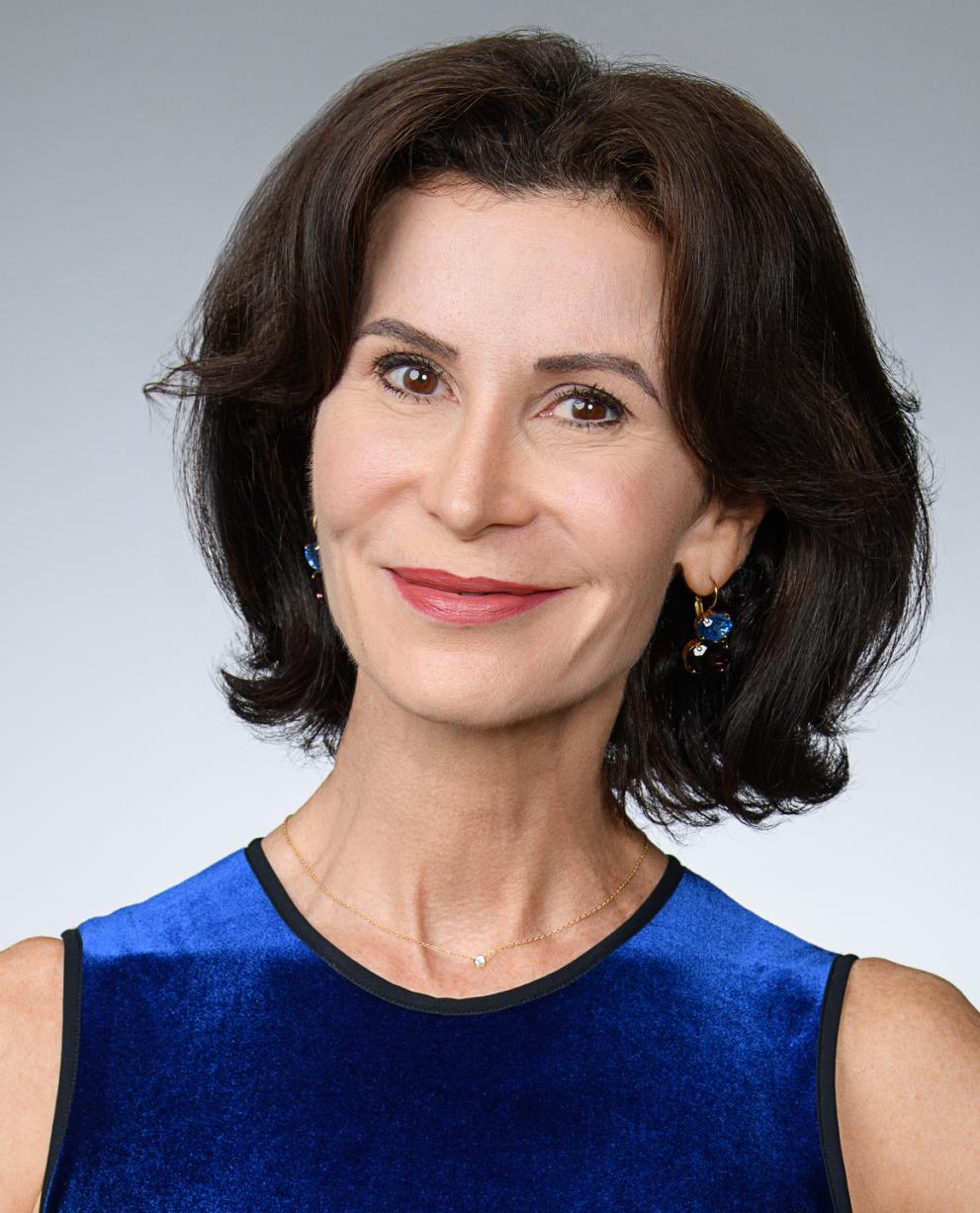 Katherine Oliver
Katherine Oliver[The European Capital of Innovation]
Katherine Oliver is a founding Principal of Bloomberg Associates, a non-profit consultancy established by former NYC Mayor Michael Bloomberg to provide strategic and practical advice to cities worldwide. Katherine oversees the media and digital strategies portfolio, helping cities harness the power of media and technology to improve government services.
As New York’s Commissioner of Media & Entertainment for 12 years, Katherine drove the City’s support of the tech sector and launched NYC Digital, a new city agency created in 2010 to realize the full integration of the City’s varied digital platforms and the full utilization of technology and social media to foster a responsive and modern government for New York City’s 8 million residents. She appointed the first-ever Chief Digital Officer for a city, and oversaw the development and delivery of New York City’s first digital roadmap outlining a strategy to establish New York City as the world’s leading digital city focusing on infrastructure, education, workforce training and marketing.
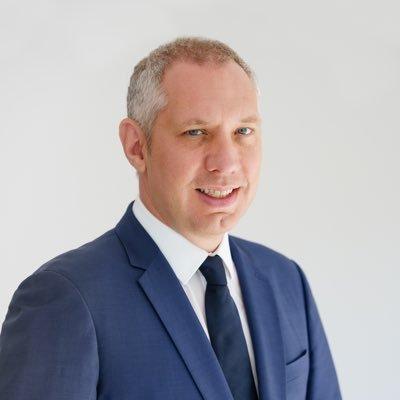 André Sobczak
André Sobczak[The European Capital of Innovation]
André Sobczak works to empower cities in EU decision making through Eurocities. He spent 20 years as a manager and impact-oriented academic, as well as serving two terms as Vice-President of the Nantes Metropolitan Area for European Affairs, Corporate Social Responsibility, and Employment. His positions in Audencia Business School have included Positive Impact Chair and Chief Executive for Corporate Social Responsibility, experience which he is harnessing to strengthen training activities and create strong ties with academia through a new Eurocities Academy. In local politics, he worked to coordinate the metropolitan area’s 24 mayors, as well as representing Nantes in Eurocities’ Executive Committee and as Chair of the network’s Economic Development Forum.
He has worked tirelessly to reinforce and communicate a virtuous circle between economic development and social and environmental goals. He leads with an approach of multi-level cooperation between the public sector, businesses and civil society for tangible positive impact.
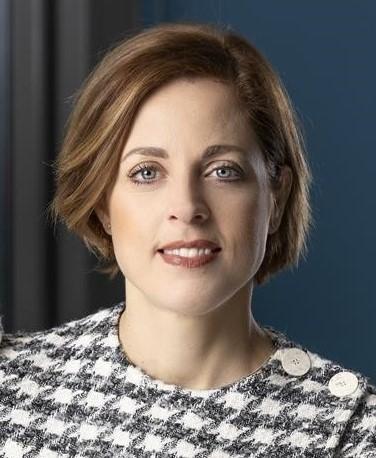 Federica Bordelot
Federica Bordelot[The European Rising Innovative City]
Federica is an expert in urban and territorial policies, with a particular emphasis on digital transformation and innovation strategies. She currently serves as the Director of Policy and Impact at the Council of European Municipalities and Regions (CEMR), representing over 110 000 local and regional governments through their national associations. Prior to this, she spent more than eight years at Eurocities, leading policy, project, and knowledge-sharing activities related to digital transformation, for and with over 200 major cities.
With 15 years of experience in EU public affairs, Federica has developed and implemented strategies to advocate for the needs of public governments at both European and international levels. She has played a key role in shaping various urban initiatives and projects and has extensive experience in fostering relationships between governments, institutions, and organizations.
 Milou Henrica Gerardina Jansen
Milou Henrica Gerardina Jansen[The European Rising Innovative City]
As Policy Officer, Researcher and Program Manager, Milou is eager to lead the way towards a just urban digital future as linking-pin between the political, social, ethical, technical and environmental implications of data-driven technologies. She combines local and international experience in the field combined with a solid academic background in Philosophy of Science, Technology & Society. Milou currently works as Project Coordinator on the ‘International Guidelines on People-Centered Smart Cities’, at UN-Habitat (United Nations Human Settlements Programme) to ensure that urban digital technologies globally contribute to making cities sustainable, inclusive, prosperous and respectful of human rights.
Previously, she has navigated roles as Lead Digital Rights & Ethics at the City of Amsterdam - launching digital ethics as a lasting priority and expertise in the city - and as Coordinator of the Cities Coalition for Digital Rights, building the coalition and co-creating a framework for mainstreaming human rights in the digital transformation of cities.
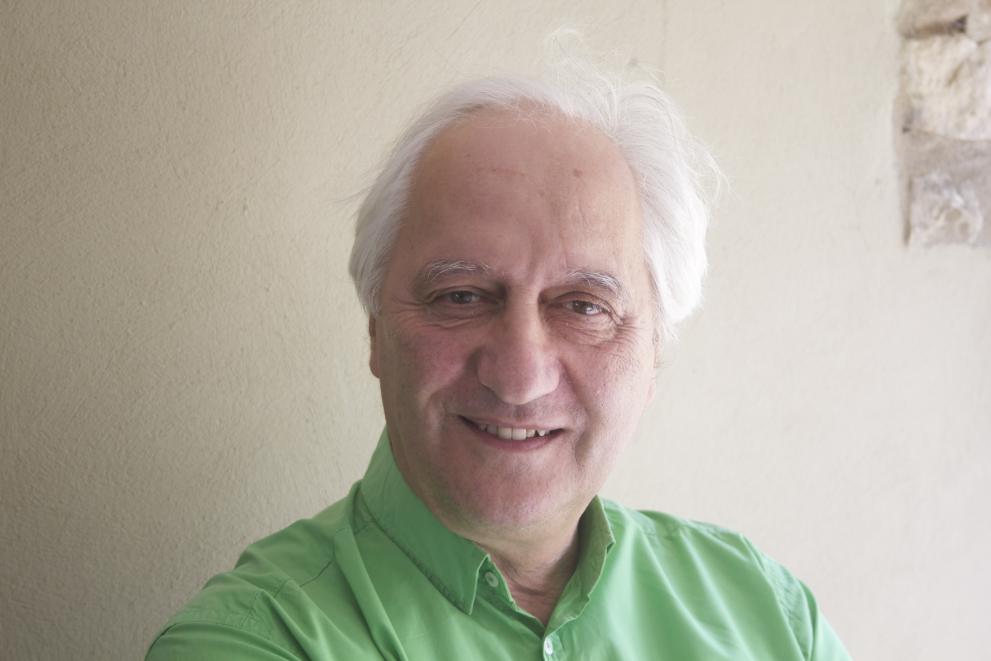 Charles Landry
Charles Landry[The European Rising Innovative City]
Charles Landry is a prominent figure in city development and innovation. Best known for "The Creative City: A Toolkit for Urban Innovators." This revolutionized how we approach city planning and management. His extensive work reimagines city-making by exploring the nomadic world, intercultural cities, cultural resources and creative economy the psychology of urban spaces, risk and fragility, creative bureaucracies, and the measurement of creativity.
His career has focused on how to rethink, replan and act differently. He established Comedia, a think tank, publisher, and consultancy in 1978. He has worked all around the world and in 2018 he co-founded the Creative Bureaucracy Festival in Berlin.
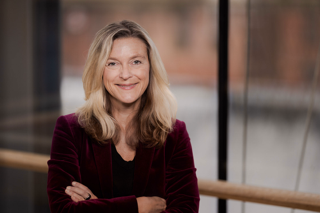 Lena Miranda
Lena Miranda[The European Rising Innovative City]
Lena Miranda is the CEO of Linköping Science Park since 2014. The Science Park works to empower individuals with entrepreneurial and digital skills, support business growth and facilitate transformative innovation processes – all in the counter sections between business, academia and society. Linköping Science Park aims to support local and regional development when it comes to social, green and digital transformation. The goal is to increase the number of jobs and generate economic growth and continuous welfare to our society.
Lena Miranda has also served as chairman for the Swedish Inucbators and Science Parks between 2018-2022, as board member in the innovation council of Sweden between 2019-2022 and she is at present the acting international president for the International Association of Science Parks and Areas of Innovation, and has served on the board for five years. She is passionate about people, community, society, sustainability, innovation, digital transformation, and world-changing ideas.
 Peter Sailer
Peter Sailer[The European Rising Innovative City]
Peter is an experienced urban development expert who has worked in various countries, including China, Germany, and across Africa. He has more than 15 years of expertise in the industry. Peter has proven records of effectively managing and leading multiple international projects relating to urban development, energy efficiency, and renewable energy.
He has worked for several renowned organisations, including Deutsche Gesellschaft für Internationale Zusammenarbeit (GIZ) GmbH and EnBW Energie Baden-Wuerttemberg AG, where he served as a Head of Project and Manager for Energy Efficient Urban Development, respectively, over the course of his career. Currently, he is in charge of the International Smart Cities Network, supporting the German Federal Ministry for Housing, Urban Development and Building, promoting the integration of digital solutions into citizen-centred urban development processes and facilitating the exchange of good practices and experiences between urban practitioners worldwide.